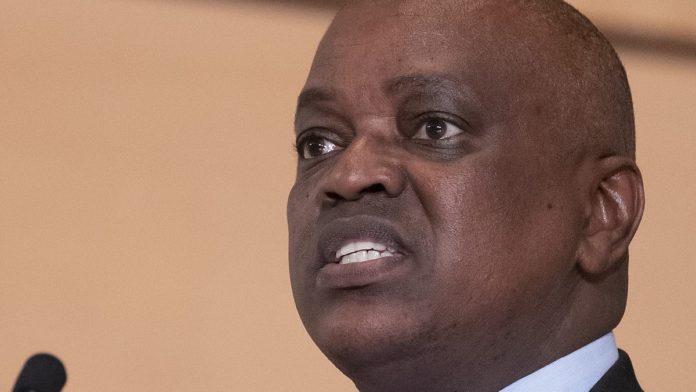
BOTSWANA President Mokgweetsi Masisi told the virtual Mining Indaba on Wednesday that his government was keen to diversify the economy by developing the coal and base metals sectors to reduce an unhealthy reliance on diamond production.
“The diamond industry is one of the key economic sectors that has been seriously affected by this pandemic with serious consequences for the development of diamond-producing countries such as ours … This has diminished revenue in diamond-dependent nations such as Botswana,” he said.
Botswana is the world’s second largest diamond producer after Russia and the sector has lost its lustre in the face of the Covid-19 pandemic and the lockdowns to contain it. Demand has contracted along with the global economy while many buyers have been unable to travel to diamond auctions, or “sights” as they are customarily called.
In the past, some buyers have travelled up to 10 times a year to Gaborone to purchase De Beers’ gems. In the first nine months of last year, Botswana’s diamond exports fell 42% compared to the same period in 2019. The precious gems account for about 80% of the export earnings of the sparsely-populated and land-locked southern African nation.
“The diamond sector has played a pivotal role in the socio-economic development of my country,” Masisi said. But the dominant role of diamonds had “put the country’s revenues at risk as a result of market fluctuations. Over-dependence on diamonds has more than ever made it imperative for us to urgently expand our revenue base to other minerals such as coal and base metals.”
Base metals include copper. The Botswana pipeline on this front includes the $259m copper and silver mining T3 (‘Motheo’) project approved late last year and backed by Australian-listed Sandfire Resources.
But Masisi’s real investment pitch to the Indaba was his nation’s untapped coal reserves.
“Botswana has large coal reserves estimated at 212 billion tons which are largely unexploited. To this end, Botswana has developed a coal road map that identified eight potential options with the aim to increase the contribution of this resource to our economy,” the president said.
Masisi added that priorities included export markets and domestic power production. He also said that Botswana was working in close collaboration with neighbouring countries to develop the infrastructure for the export of coal. That would involve working with the likes of South Africa’s Transnet. The massive coal terminal at Richards Bay would be a natural destination depending on its capacity.
It remains to be seen if investors have the appetite for coal projects in a water-scarce nation such as Botswana, which is also famed for its abundant wildlife.
Financing for new coal projects is increasingly difficult to obtain as banks and investors take a hard look at the fossil fuel because of its links to climate change. As an asset in a portfolio, coal is becoming radioactive. And Botswana has no shortage of sunshine to help power up an economy that only has to support a population of 2.3 million. Masisi may find that Botswana has come to the coal party rather late.











